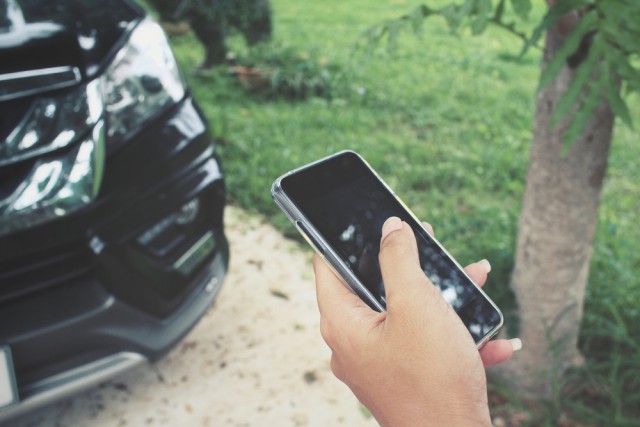How the automotive industry can benefit from an after sales app

In the new digital communications age it’s often the simplest, yet most elegant solutions that capture our imaginations and take off. People across the world have fallen in love with the sleek, pocket-friendly form of the iPhone, for example, or the pared-back concept of Twitter. Consumers can follow the journey of low-cost goods such as a coffee maker from Amazon or a pizza from Dominos from the warehouse to their doorstep quickly and easily via their smartphone or tablet. In London each week, 30,000 people download the Uber app knowing that this will enable them to hail a taxi with a swipe of the technology in their pocket.
The automotive industry has been among the pacesetters, of course, in embracing stylish innovation. The advent of the driverless car and the use of virtual reality and other immersive technologies like augmented reality to drive marketing and sales of vehicles provide compelling examples of how pioneering the sector can be. Car servicing has remained a stubbornly conservative low-tech industry until recently, however.
Often, it’s still based on an extended game of telephone tag as garages chase approval for additional repairs and customers try to find time to return calls in between meetings at the office. With this in mind, it’s not surprising that several large car manufacturers have been mulling over the idea of app which provides customers with a direct line to whoever is servicing and maintaining their car.
In fact, they have been doing more than just playing with the concept, several have been developed and put into use.
These have been great for servicing alone, relieving the customer of the need to pick up the phone, other than to read a "push" message from the service desk. However, these vendor-specific apps have cut out the garage or dealership, in the way that they have little control over the content.
Maintaining customer service
But while a few years ago we’d be more likely to book a GP’s appointment online than a service for our car, these early automotive apps have broken the barriers. Now a new app has been launched that is fully-customizable to fit a garage’s brand and is available as a white label option, downloadable onto Apple and Android devices. The exciting thing about this app is that it becomes more than just a workshop management or text alert system. In fact, canny marketers will use the app as a direct hotline to their customers.
Via the app, the garage can offer real-time service updates at five stages of the process: the initial check-in; an "in-progress" update; Electronic Vehicle Health Check (EVHC) approval of additional work (supplemented by video evidence which customers can review and sign-off); cleaning and finally an alert that the car is ready to collect.
The app developer, Ingelby Automotive, says that the app cuts average response time to EVHC decisions to 9.08 minutes, with some approving work in less than one minute. And finally at the end of the process, payments can be handled via the app too, taking away the pressure of the last minute rush to the garage.
The rest of the year, a complementary concierge service issues reminders on car tax, insurance and MOTs, which all helps to encourage customer loyalty. Customer interaction is instant, seamless and auditable, providing a complete service trail for dealers and manufacturers, as well as allowing for further communications via push messaging around up-sale opportunities, promotions and offers of potential interest.
The delivery of push notifications are key in this context as they typically have higher average open and opt-in rates than emails as well as faster click through rates and response times. At the same time, they can effectively be delivered at zero cost to the business, and can offer message tracking and full customer segmentation via back office dashboards.
The use of push marketing also opens up a route to customers for sending out new and used stock lists or other up- or cross-sell opportunities, marketing information on special deals or invitations to test drive new models and other customer incentives. Garages can even use this route for surveys or feedback to further engage with customers and to test the market mood.
At the same time, customers benefit from the convenience of being able to book a service 24/7, the reassurance of knowing how the service is progressing and the ability to quickly and easily approve, or pay for work done. Moreover, customers also have the opportunity to save relevant documents like the EVHC summary and the invoice for work done on their mobile device and have it always to hand, eliminating the need to save paper documents.
If the car industry is to take a hit from a potential miss-selling scandal -- a possibility predicted by several national newspapers recently -- it needs to do all it can to maintain its customer service. When times are difficult, it’s always tempting for customers to sacrifice professionalism for affordability, so those offering the quality option must do all they can to keep it that way. If they can do this they will get their own reward.
Ollie Lane, managing director, Ingelby.
Published under license from ITProPortal.com, a Future plc Publication. All rights reserved.
Photo Credit: successo images/Shutterstock
